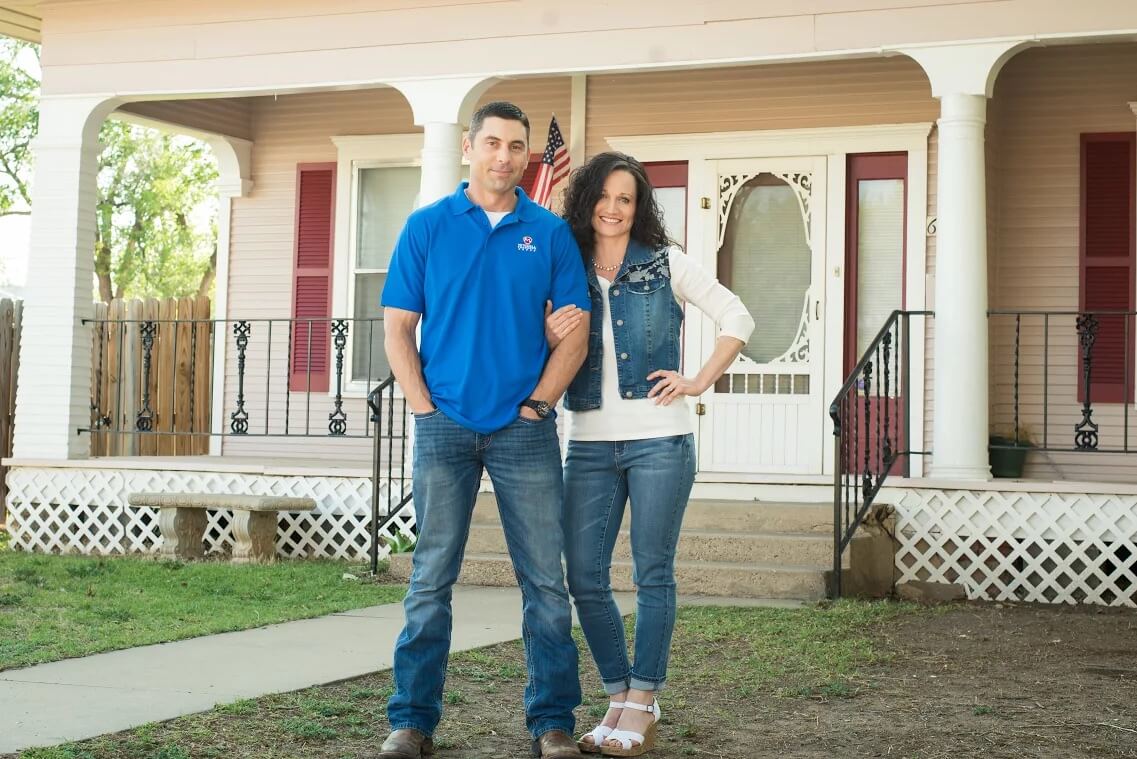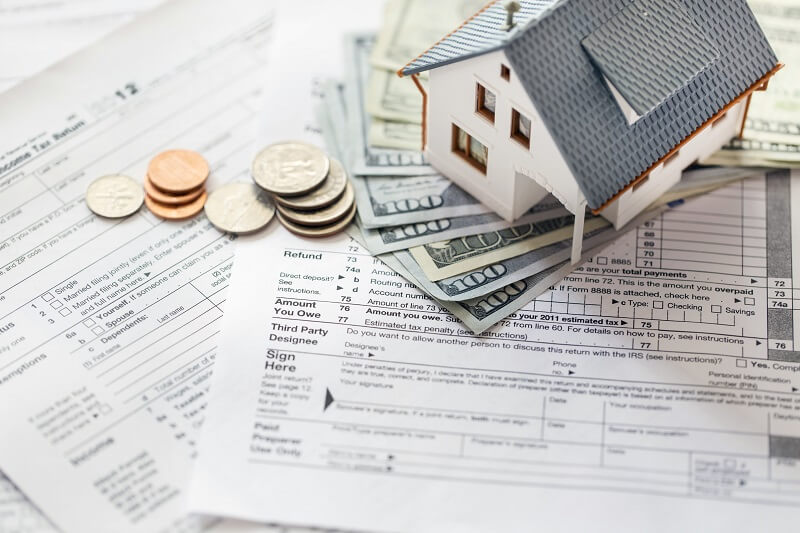Flipping houses can be one of the best financial tools for hacking financial freedom, boosting your income, getting out of a job you dislike, and gaining the time you crave.
ALL ABOUT FLIPPING HOUSES
Flipping houses has grown incredibly in popularity over the last 20 years. More recently we’ve seen an explosion of real estate investing ‘gurus’ and house flipping shows on reality TV. This form of real estate investment is promoted as being one of the best for generating large amounts of cash in short periods of time.
For many individuals and families it is seen as the only path to leaping ahead financially and taking control of their finances and lifestyle.
- At times there have been over 250,000 house flippers in the United States looking for properties to buy and resell for windfalls of cash.
- Official figures show that during the most active periods around 10% of all homes sales have been flips.
Of course we all know that ‘reality TV’ isn’t really reality; so how does flipping houses really work? Can you really make money flipping houses?

HOW HOUSE FLIPPING WORKS
‘Flipping houses’ is actually a very misunderstood and often confusing term which is commonly generically applied to more than one method of buying and selling real estate. So how does House Flipping really work?
Fix & Flip
The house flipping that we see on television typically shows the buy, fix, and flip strategy of investing in residential houses.
- Step one of this scenario real estate investors are picking up distressed properties at prices they believe are discounted.
- Then they dig in to repairing them, improving them, and sometimes even replacing them.
- Once they have a finished and polished product the home is unveiled to the public via an open house with the hopes of achieving a high purchase offer right away.
This can be a great strategy for profiting from real estate, and can offer a valuable service to sellers, the economy, local neighborhoods, workers, and buyers.

However, this isn’t the only way to ‘flip houses’.
Fix and flip investors can vary widely on how much fixing up they do. Some prefer sticking to basic cosmetic improvements. That means looks. Great value and profits can be found simply by improving the appeal of a home. We’ve all heard about ‘curb appeal’. This might include giving the landscaping a makeover. Some will stick to basic interior and exterior painting, putting in new flooring, and changing a few fixtures.
Other investors love going all in with more serious rehabbing and renovations. They may change and modify floor plans, replace windows, tear out and make over kitchens and bathrooms. They could put in swimming pools, convert rooms, and more. This may take more money, time, and expertise, but it can be exciting.
A few investors are brave enough to take on the most daring property challenges – those with structural issues. This includes items like roofs, foundations, plumbing, electrical, and hazards such as termite infestations and mold. Properties with these problems are often discounted to account for these additional costs and risks. With less competition some investors find this a great niche. Others steer clear of the extra liability, capital requirements, and liability.
The president of Florida based Keyes Company Realtors has said there will always be an opportunity to reposition properties. Repositioning is a broad term, includes many ways for investors to increasing the appeal and value of a property for resale.
This may incorporate some of the above methods, as well as enhancing the profitability of a property, its usage, and financial performance. It could mean a basic cosmetic makeover and then remarketing to a different buyer group.
For instance; adding modern design elements, putting in high speed internet and promoting the property as a great choice for tech workers. It could also mean adding value by leasing more units, or replacing tenants with higher paying ones, or different types of tenants.
Hold & Flip
Some investors aren’t into rolling up their sleeves to do manual labor, or aren’t pressed to make a paycheck right away.
They may simply pick up a property and hold it until they can resell for a higher price. This may be a day, a year, or more. Most often these investors are banking on making their money from appreciation. This can be risky, but profitable if it pans out.
This strategy is often seen with vacant land and lots as well as prime NYC condos.
Real Estate Wholesaling
Wholesaling real estate is also a form of flipping houses. Wholesaling cuts out the need to get into all the messes and sticky situations we see on TV. There is no fixing up and rehabbing.
It’s all about buying low, and reselling those properties for a profit.
Often these properties will be resold to flippers who do all the rehabbing before selling to end retail buyers from the public, or who keep them as rental homes. It’s a buy low, sell low, high ROI, volume business.
To collect data and statistics house flipping is often officially counted as a transaction in which a property is resold in less than 12 months.
However, there are clearly several degrees of flipping from simply wholesaling undervalued property without improving it, to minor cosmetic improvements to full rehabbing, and even just reselling after accumulating equity over a period of days or months.
Flipping Commercial Real Estate
Flipping properties doesn’t have to be limited to single family houses. They may be the most plentiful property type, but there are many others to choose from as well.
This can include all types of commercial real estate including vacant parcels of land, parking lots, multifamily apartment buildings, malls, warehouses, offices, hotels, and more. Some even go as far as flipping property rights. This can include oil and mineral rights, air rights, access rights, and more. Some savvy investors specialize in assembling smaller parcels to then flip to developers.
For example; buying up a whole block and then selling to a builder who can put up a condo building, mall, or hotel.
The Benefits of Flipping Houses
There are many benefits of flipping houses. There are the direct benefits to the real estate investor themselves. While the amount of money to be made on flipping a property can vary widely many will find it pays far more than any job they could get working for someone else.
The flexible scheduling means individual investors get to set their own hours. You can choose to flip houses occasionally, on the weekends, put in a four hour work week, a four day work week, or flip houses full time.
You can pause when you want a holiday, and can clock out when you like to make those kids’ sporting events, and important dates. You get to be your own boss. No one can ever fire you again. You are in control of your financial future.
Then there are the benefits to everyone else involved. Much like building a new home; renovating a home creates jobs and earns revenue for local government and public services. More remodeled homes and occupied homes helps keep up the lifestyle and value in a community. This all in turn helps the greater economy which can come full circle to help local neighborhoods and creates an upward spiral for the investor.
Sellers and buyers benefit too. Owners that need to sell can find themselves stuck in a rapidly deteriorating situation unless an investor can come to the rescue and buy their property. Other regular home buyers might not purchase properties which need repairs, have title issues, etc. Home buyers then benefit because they are able to more easily purchase and finance housing that they really want. Ready to start Flipping? See our guide on Getting Started Flipping Houses.
CAN YOU MAKE MONEY FLIPPING HOUSES?
Can you really make money flipping houses? This is often pushed as the easy, fast way to make money. Some see this as being overly simplified or even too good to be true. Others have looked into it, but haven’t taken the action they need to in order to find profitable deals and make money. So does it really work?

What do the numbers say?
- According to CNBC News around 180,000 condos and single family homes were flipped in 2015 alone.
- In the first 3 months of 2016 RealtyTrac reports the average gross profit on a flip was over $58,000, with ROI topping 103% in at least 5 markets, and profit topping $100,000 per deal in 5 major cities from coast to coast.
So others are clearly not only flipping houses successfully, but they are also making a lot of money doing it too. So can you!
Important Factors in Flipping Houses
Obviously while flipping houses is attractive individuals need to prepare themselves to be successful. They need to learn about financing and private lenders, comps and valuing properties, how to assess repair needs and manage contractors, how to create real estate marketing, find motivated sellers and viable properties, as well as end buyers.
To be successful you’ll want to improve your knowledge of these items, learn how to flip houses quickly and consistently, learn from others’ mistakes in advance, and find proven systems to plug in for streamlining your way to success.
Online Real Estate Investment Systems & Coaching Program to help accelerate your business:
